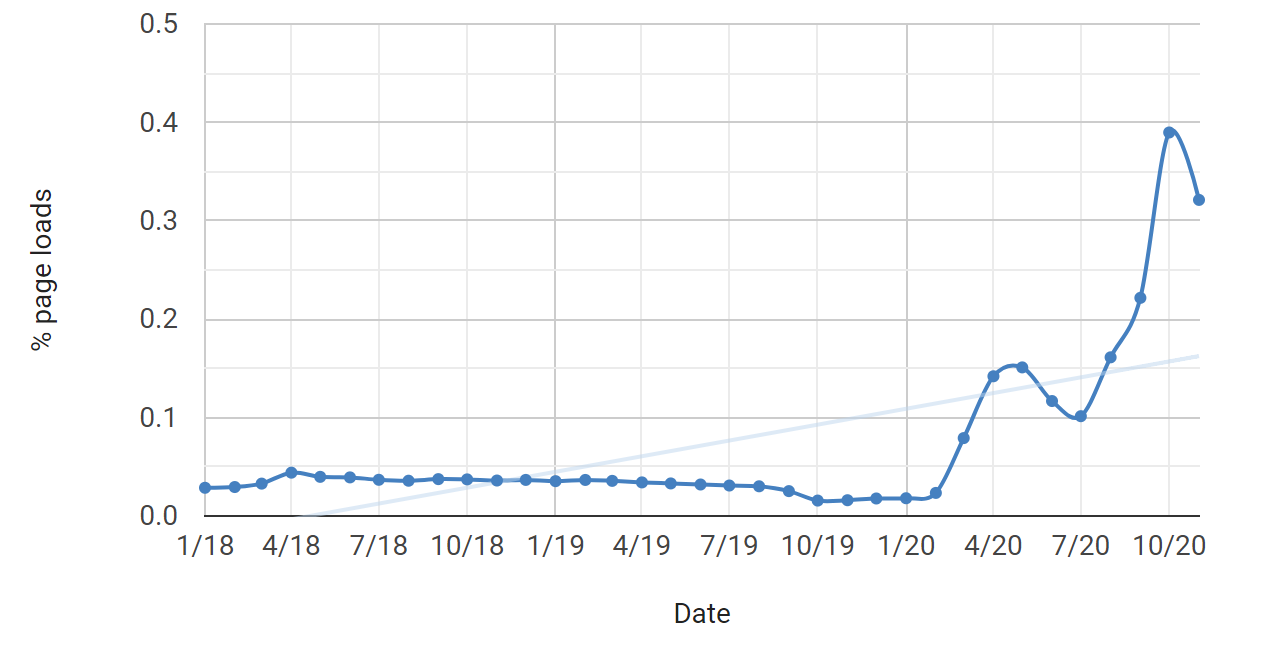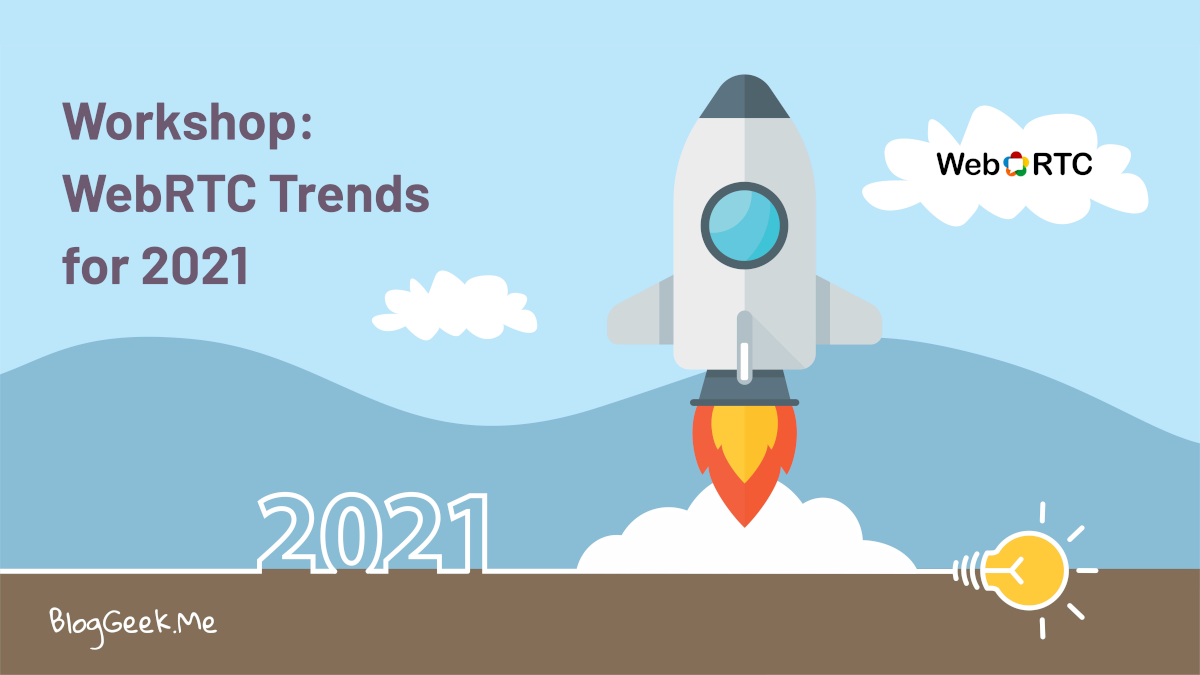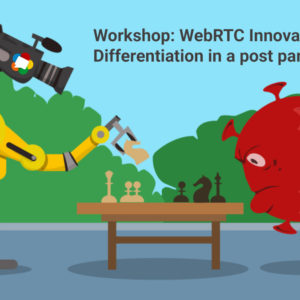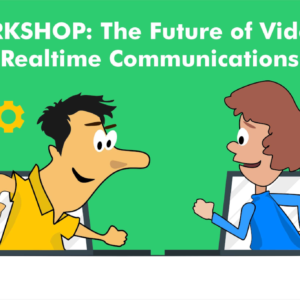For a more recent workshop please visit WebRTC Trends for 2022
This workshop has taken place in February 2021 and is now available in recorded format.
A look at where R&D investments in WebRTC are headed in 2021
WebRTC use is growing, driven by the pandemic and an introduction of many new use cases and requirements.
The graph below says it best:

The percentage of page loads in Chrome using AddStream (a WebRTC API call).
One thing that is apparent now, is that the original AppRTC demo application by Google is quite outdated to today’s needs. There are certain areas where leading vendors are pushing the boundaries and trying to get their applications to outperform competition.
This online workshop focuses on these trends and how they are going to shape 2021.
The Gist
This is going to be an online workshop that will take place during February.
To keep you focused, it will be split into 3 sessions in 3 separate days.
Three 2-hour online sessions
Open mic
What will we cover?
Recorded
Additional resources and materials
Agenda
Session 1: The race towards 49-gallery view
WebRTC requires lots of CPU and network resources. While writing a proof of concept or a simple application is relatively easy, figuring out how to deliver an optimized and superior user experience with it is a real challenge.
In this session we will go through the various tools available to us during the optimization process:
Session 2: De-noising the home office
We’ve shifted to Work From Home and Work From Anywhere. While we do plan to go back to the offices, more work is going to be done outside the office from now on. This brings with it a new challenge of de-noising the environment of the users - being able to give them privacy wherever they are from what seeps through their cameras and microphones into their meetings.
In this session we will explain and see how background blurring/replacement and noise suppression are being added to WebRTC:
Session 3: Security and video coding
Security took center stage in video conferencing in 2020 and will become important moving forward. The latest trend in the past several years is E2EE (End-to-End Encryption) and there is a specific way of implementing it in WebRTC.
Another interesting trend is the rapid growth of AV1, the new and upcoming royalty free video codec. Cisco and Google are already using it in certain areas, which begs the question - where should your focus lie in this area of video codecs?
In this session we will touch these two topics:
About me
Tsahi Levent-Levi is an Independent Analyst and Consultant for WebRTC. Tsahi acts as the W3C Evangelist for everything WebRTC.
Tsahi Levent-Levi has over 20 years of experience in the telecommunications, VoIP and 3G industry as an engineer, manager, marketer and CTO. Tsahi is an entrepreneur, independent analyst and consultant, assisting companies to form a bridge between technologies and business strategy in the domain of telecommunications.
Tsahi is the author and editor of BlogGeek.me, which focuses on the ecosystem and business opportunities around WebRTC. He is also a co-founder of Kranky Geek, a conference for WebRTC for developers, sponsored by industry leaders such as Google, Intel, TokBox, Twilio and IBM.
Tsahi is also the co-founder and CEO of testRTC, a company providing self-service testing, monitoring and support solutions for WebRTC applications.
What are people saying
Here's what attendees of this workshop had to say about it:
"
I was looking for an update on the WebRTC market and technology trends, and the workshop provided exactly that.
The information was specific, very well organized, and delivered in an engaging and entertaining way.
The workshop was split into three sessions and gave me enough time to think about the material, do additional research, and prepare questions for the next session.
I left the workshop with a solid understanding of the WebRTC technology, even more importantly, of the many technology tradeoffs that the WebRTC community made along the way.
I use this knowledge in my everyday interactions with colleagues and customers, and think that the workshop would be beneficial for anyone in a Video Product Management or Architecture role, even for Solution Engineers who specialize in Video.
Stefan Karapetkov
Twilio
"
For me, the most useful part of the workshop was that I was able to interrupt and ask questions at any time, and have you provide relevant answers.
The workshop instilled some concepts and principles related to large group calls which will stay in my thoughts as our company works on future designs. That may be beneficial to our business.
I think the workshop could be beneficial to others, because it may save them some time and energy. The research you've done and the condensed way you present it is efficient in terms of time.
Cody Herzog
Teladoc Health





